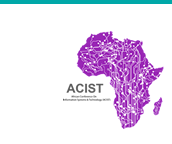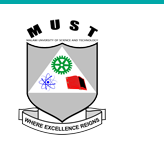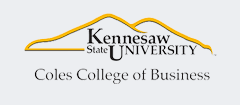Location
Virtual - Microsoft Teams Meeting
Start Date
2-7-2020 3:00 PM
End Date
2-7-2020 3:15 PM
Timezone
Ethiopian Time
Start Date (EST)
July 2020
End Date (EST)
July 2020
Description
The industry 4.0 will bring reflective changes to our society, including an important digital shift in the manufacturing sector. At present, several manufacturing firms are trying to adopt the practices of industry 4.0 throughout their supply chain. The Fourth Industrial Revolution and the artificial intelligence at its core are fundamentally changing the way we live, work and interact as citizens. The complexity of this transformation may look overwhelming and to many threatening. Recently, the dramatic growth of new generation information technologies has prompted several countries to seek new strategies for industrial revolution. The globalization and the competitiveness are forcing companies to rethink and to innovate their production processes following the so-called Industry 4.0 paradigm. It represents the integration of tools already used in the past (big data, cloud, robot, 3D printing, simulation, etc.) that are now connected into a global network by transmitting digital data. Digitization and intelligentization of manufacturing process is the need for today’s industry. The manufacturing industries are currently changing from mass production to customized production. The rapid advancements in manufacturing technologies and applications in the industries help in increasing productivity. The term Industry 4.0 stands for the fourth industrial revolution which is defined as a new level of organization and control over the entire value chain of the life cycle of products; it is geared towards increasingly individualized customer requirements. Industry 4.0 is still visionary but a realistic concept which includes Internet of Things, Industrial Internet, Smart Manufacturing and Cloud based Manufacturing. Industry 4.0 concerns the strict integration of human in the manufacturing process so as to have continuous improvement and focus on value adding activities and avoiding wastes. The objective of this work is to provide an overview of Industry 4.0 and understanding of the pillars of Industry 4.0 with its applications and identifying the challenges and issues occurring with implementation the Industry 4.0 and to study the new trends and streams related to Industry 4.0 with artificial intelligence by using flexible intelligent approach. Based on intelligent and flexible AI methods and the complex safety relations in the process industry, we identify and discuss several technical challenges associated with process safety: knowledge acquisition with scarce labels for process safety; knowledge-based reasoning for process safety; accurate fusion of heterogeneous data from various sources; and effective learning for dynamic risk assessment and aided decision-making.
Included in
Digital Communications and Networking Commons, Other Electrical and Computer Engineering Commons, Robotics Commons
Artificial Intelligence Towards Future Industrial Opportunities and Challenges
Virtual - Microsoft Teams Meeting
The industry 4.0 will bring reflective changes to our society, including an important digital shift in the manufacturing sector. At present, several manufacturing firms are trying to adopt the practices of industry 4.0 throughout their supply chain. The Fourth Industrial Revolution and the artificial intelligence at its core are fundamentally changing the way we live, work and interact as citizens. The complexity of this transformation may look overwhelming and to many threatening. Recently, the dramatic growth of new generation information technologies has prompted several countries to seek new strategies for industrial revolution. The globalization and the competitiveness are forcing companies to rethink and to innovate their production processes following the so-called Industry 4.0 paradigm. It represents the integration of tools already used in the past (big data, cloud, robot, 3D printing, simulation, etc.) that are now connected into a global network by transmitting digital data. Digitization and intelligentization of manufacturing process is the need for today’s industry. The manufacturing industries are currently changing from mass production to customized production. The rapid advancements in manufacturing technologies and applications in the industries help in increasing productivity. The term Industry 4.0 stands for the fourth industrial revolution which is defined as a new level of organization and control over the entire value chain of the life cycle of products; it is geared towards increasingly individualized customer requirements. Industry 4.0 is still visionary but a realistic concept which includes Internet of Things, Industrial Internet, Smart Manufacturing and Cloud based Manufacturing. Industry 4.0 concerns the strict integration of human in the manufacturing process so as to have continuous improvement and focus on value adding activities and avoiding wastes. The objective of this work is to provide an overview of Industry 4.0 and understanding of the pillars of Industry 4.0 with its applications and identifying the challenges and issues occurring with implementation the Industry 4.0 and to study the new trends and streams related to Industry 4.0 with artificial intelligence by using flexible intelligent approach. Based on intelligent and flexible AI methods and the complex safety relations in the process industry, we identify and discuss several technical challenges associated with process safety: knowledge acquisition with scarce labels for process safety; knowledge-based reasoning for process safety; accurate fusion of heterogeneous data from various sources; and effective learning for dynamic risk assessment and aided decision-making.




Comments
The industry 4.0 will bring reflective changes to our society, including an important digital shift in the manufacturing sector. At present, several manufacturing firms are trying to adopt the practices of industry 4.0 throughout their supply chain. The Fourth Industrial Revolution and the artificial intelligence at its core are fundamentally changing the way we live, work and interact as citizens. The complexity of this transformation may look overwhelming and to many threatening. Recently, the dramatic growth of new generation information technologies has prompted several countries to seek new strategies for industrial revolution. The globalization and the competitiveness are forcing companies to rethink and to innovate their production processes following the so-called Industry 4.0 paradigm. It represents the integration of tools already used in the past (big data, cloud, robot, 3D printing, simulation, etc.) that are now connected into a global network by transmitting digital data. Digitization and intelligentization of manufacturing process is the need for today’s industry. The manufacturing industries are currently changing from mass production to customized production. The rapid advancements in manufacturing technologies and applications in the industries help in increasing productivity. The term Industry 4.0 stands for the fourth industrial revolution which is defined as a new level of organization and control over the entire value chain of the life cycle of products; it is geared towards increasingly individualized customer requirements. Industry 4.0 is still visionary but a realistic concept which includes Internet of Things, Industrial Internet, Smart Manufacturing and Cloud based Manufacturing. Industry 4.0 concerns the strict integration of human in the manufacturing process so as to have continuous improvement and focus on value adding activities and avoiding wastes. The objective of this work is to provide an overview of Industry 4.0 and understanding of the pillars of Industry 4.0 with its applications and identifying the challenges and issues occurring with implementation the Industry 4.0 and to study the new trends and streams related to Industry 4.0 with artificial intelligence by using flexible intelligent approach. Based on intelligent and flexible AI methods and the complex safety relations in the process industry, we identify and discuss several technical challenges associated with process safety: knowledge acquisition with scarce labels for process safety; knowledge-based reasoning for process safety; accurate fusion of heterogeneous data from various sources; and effective learning for dynamic risk assessment and aided decision-making.